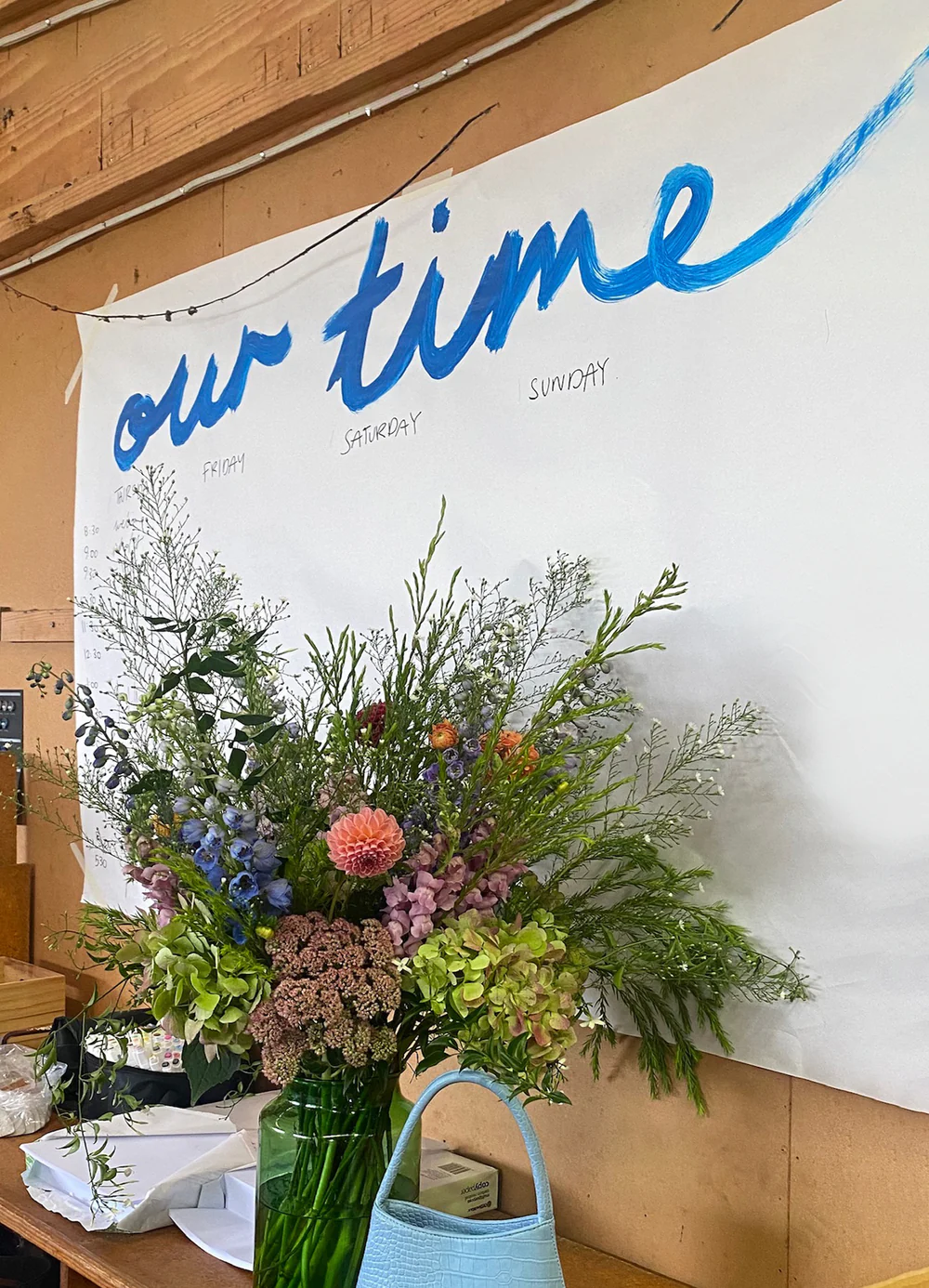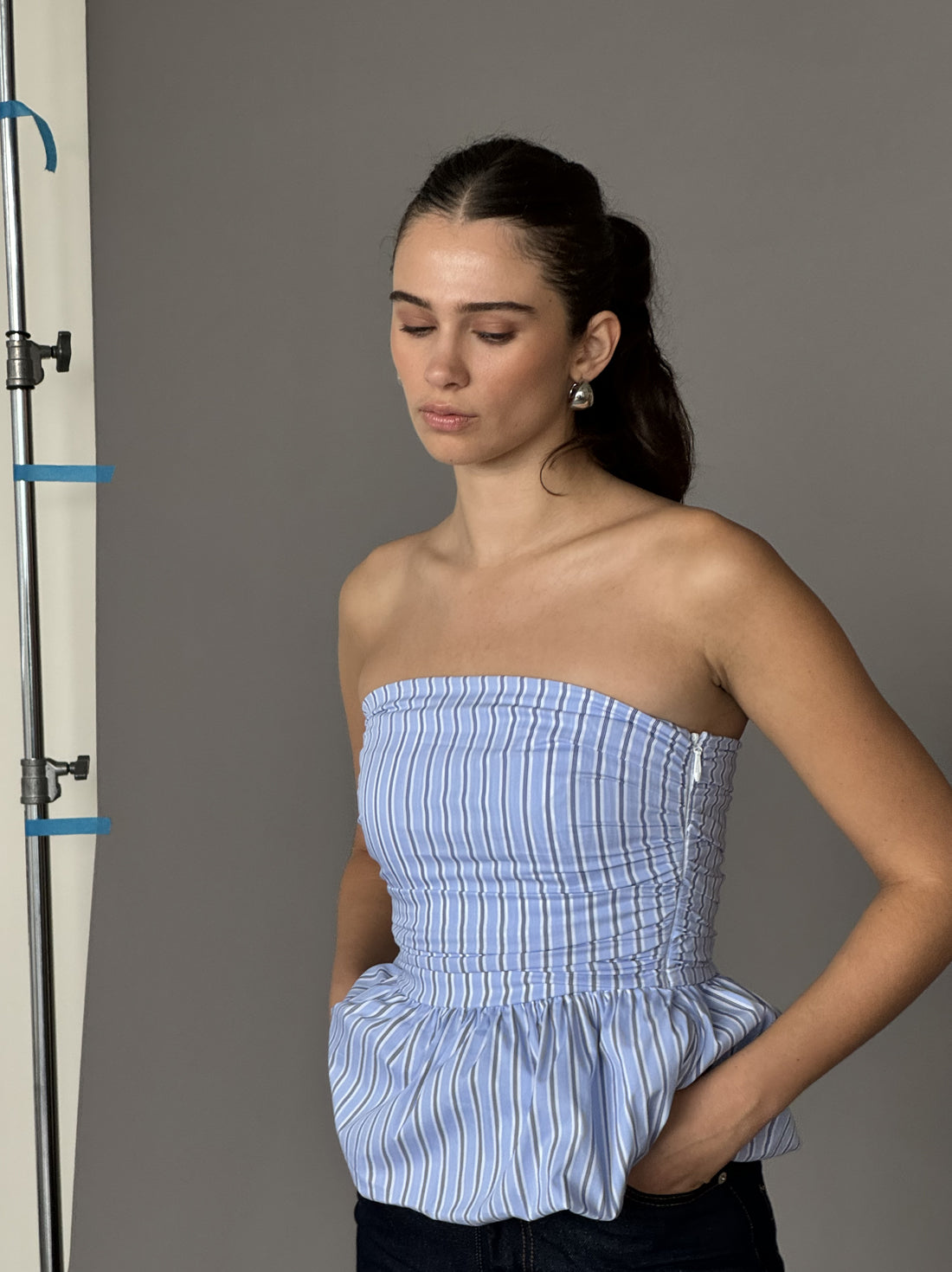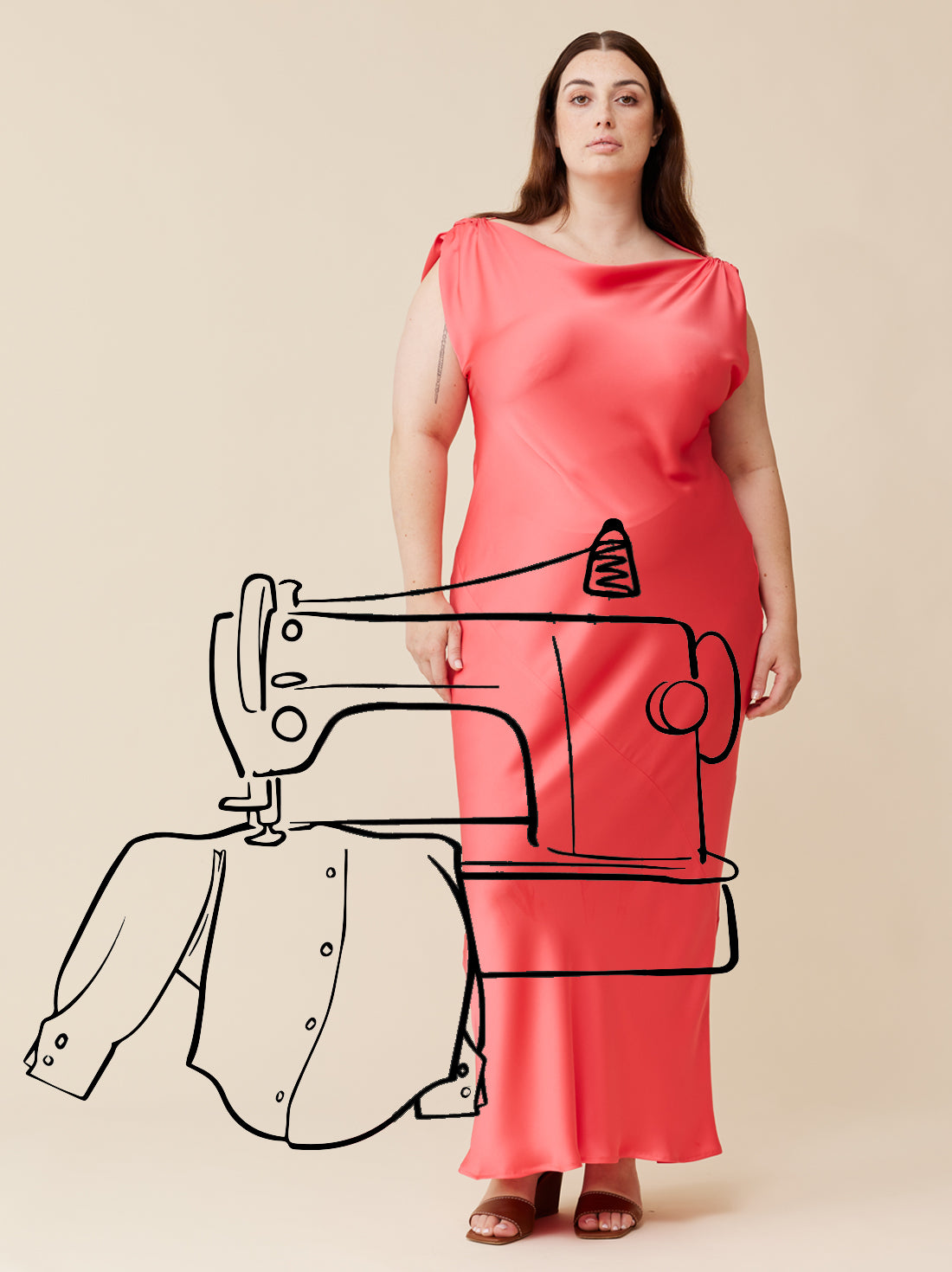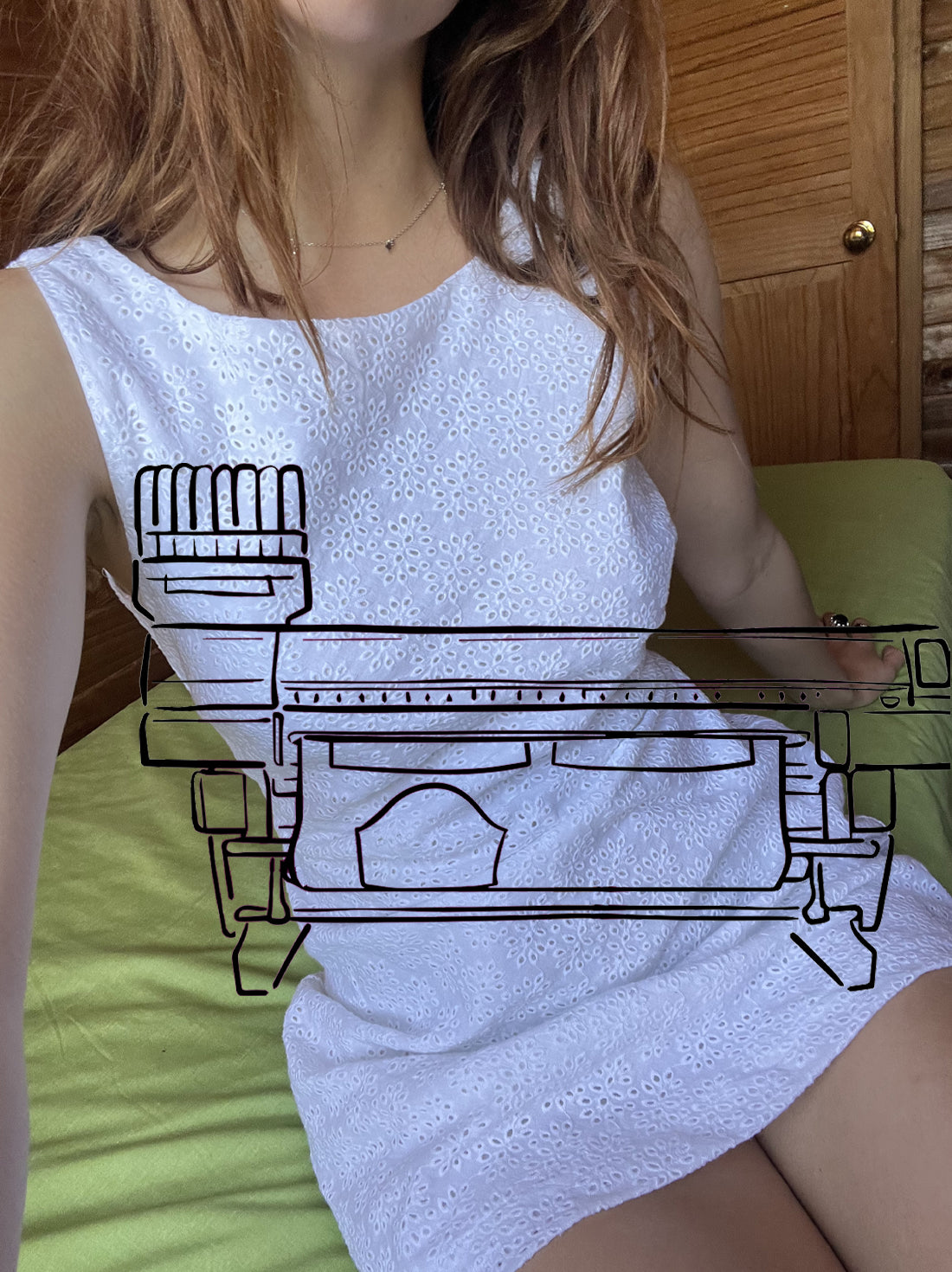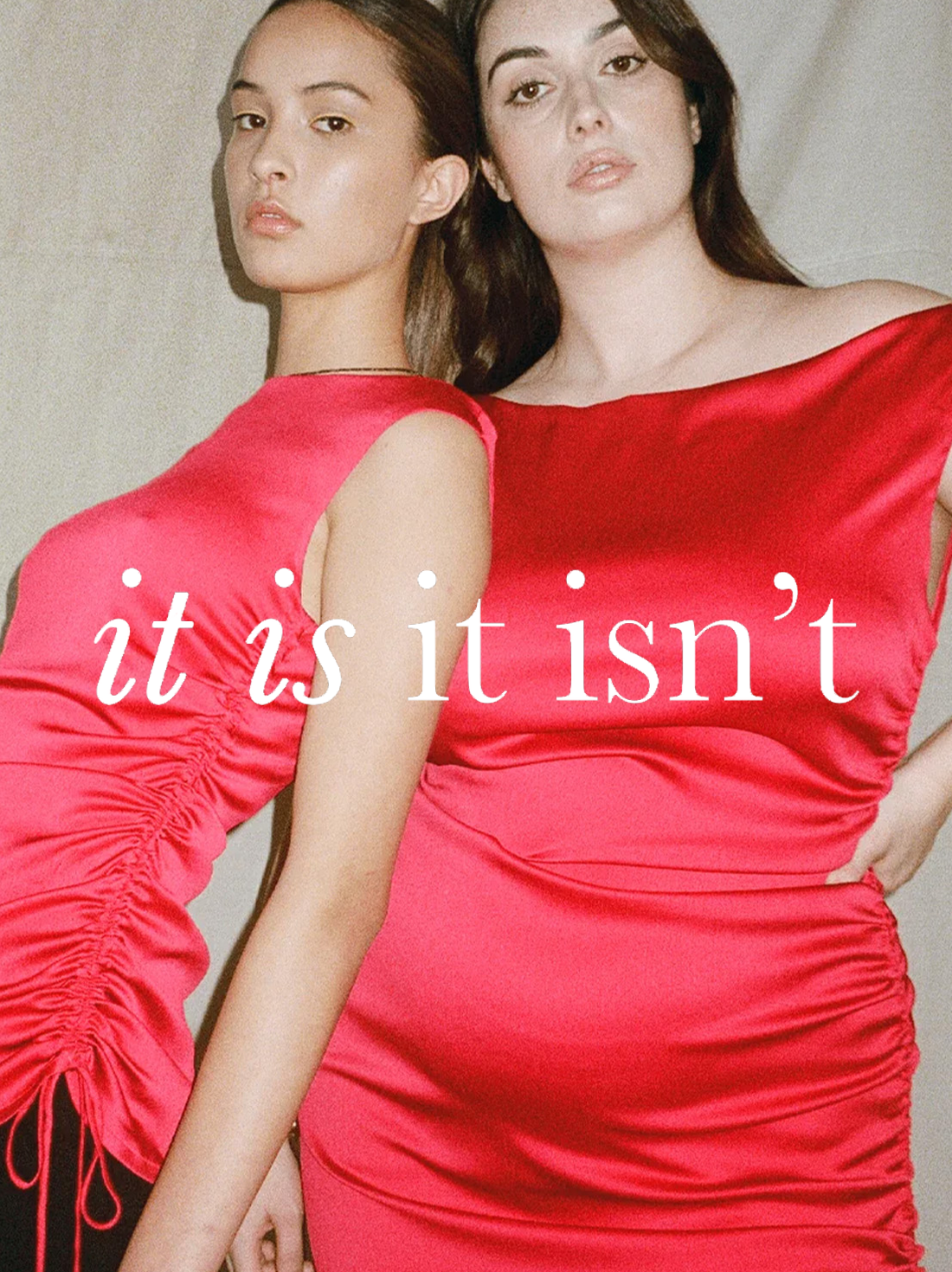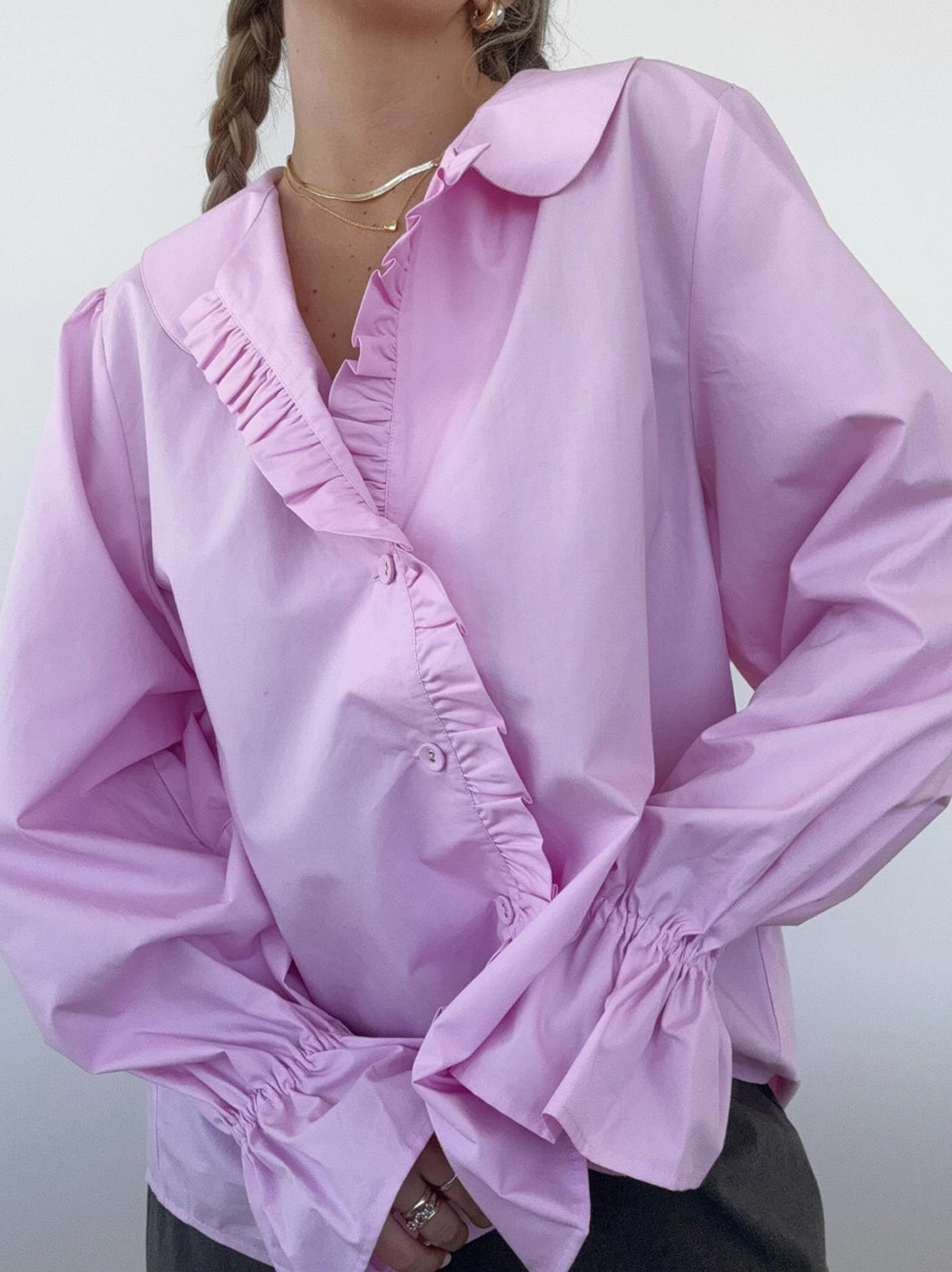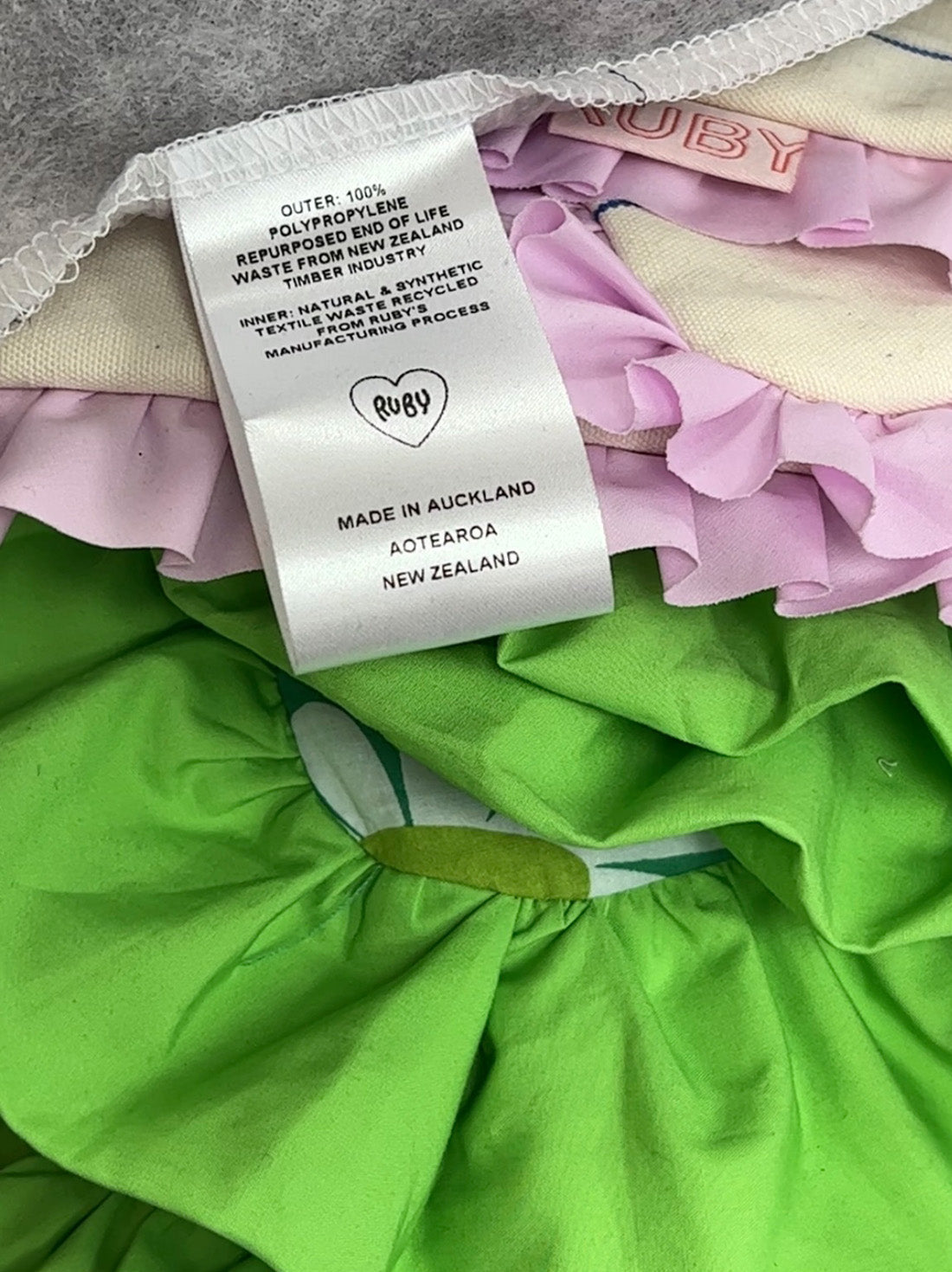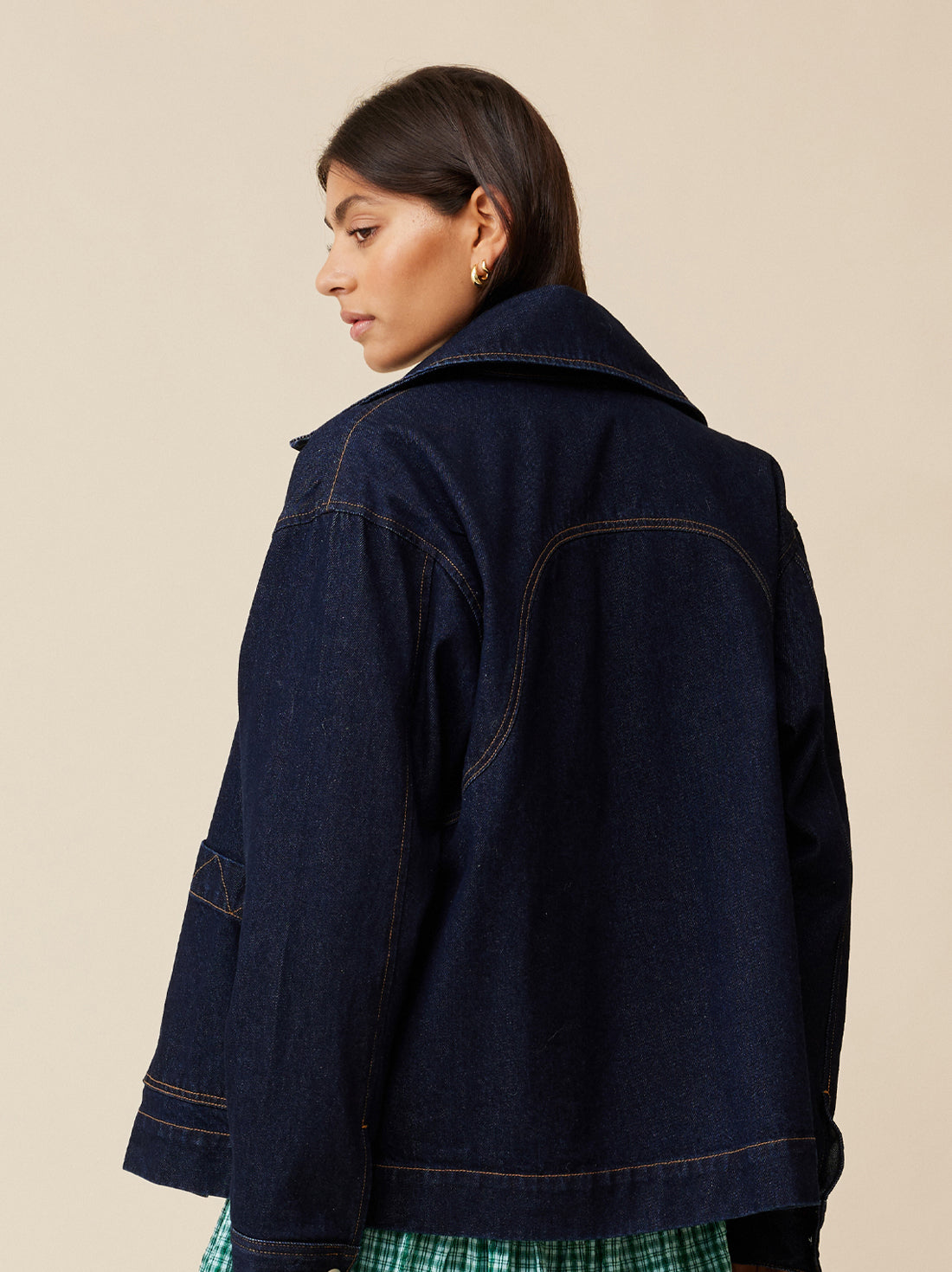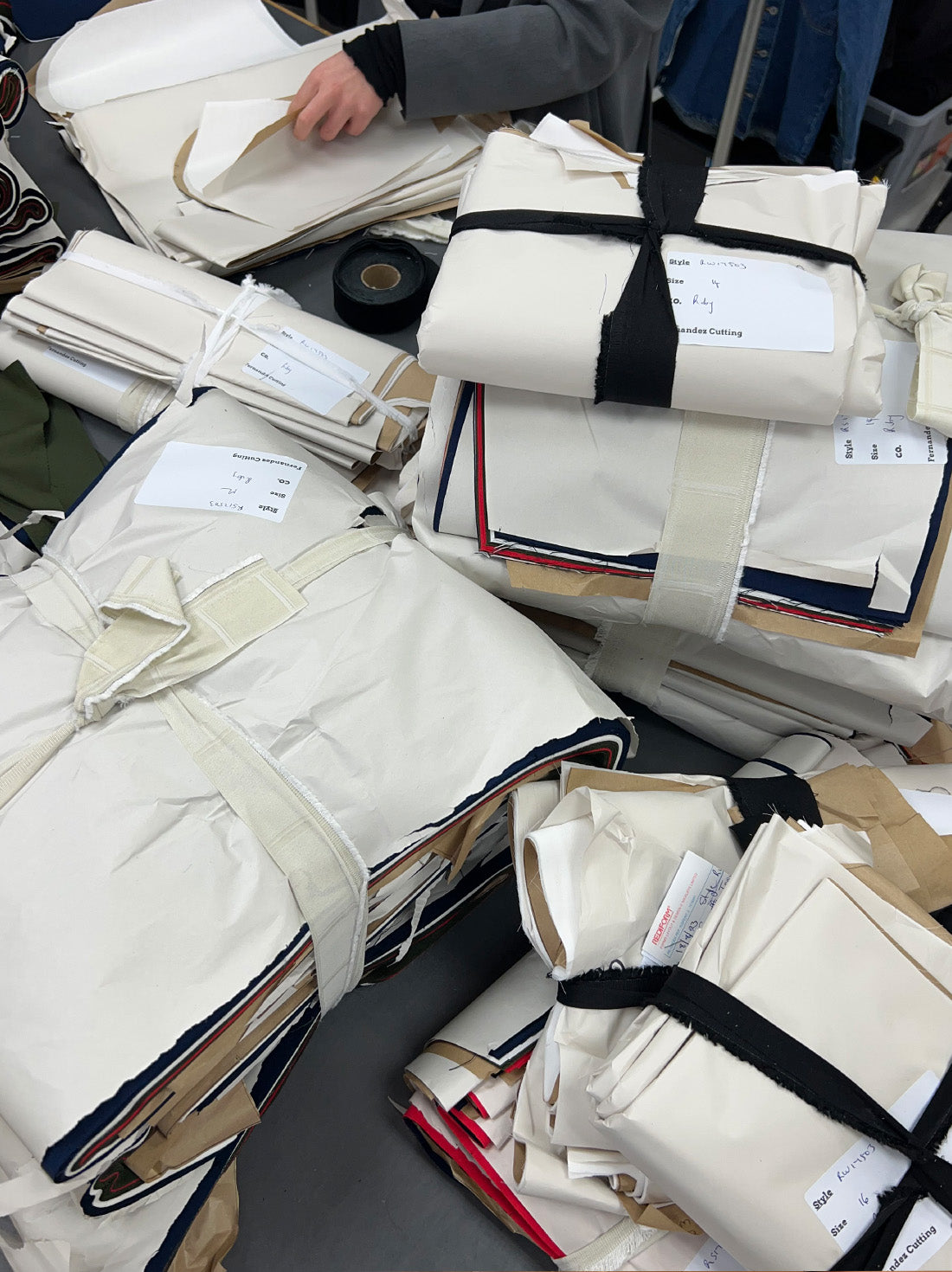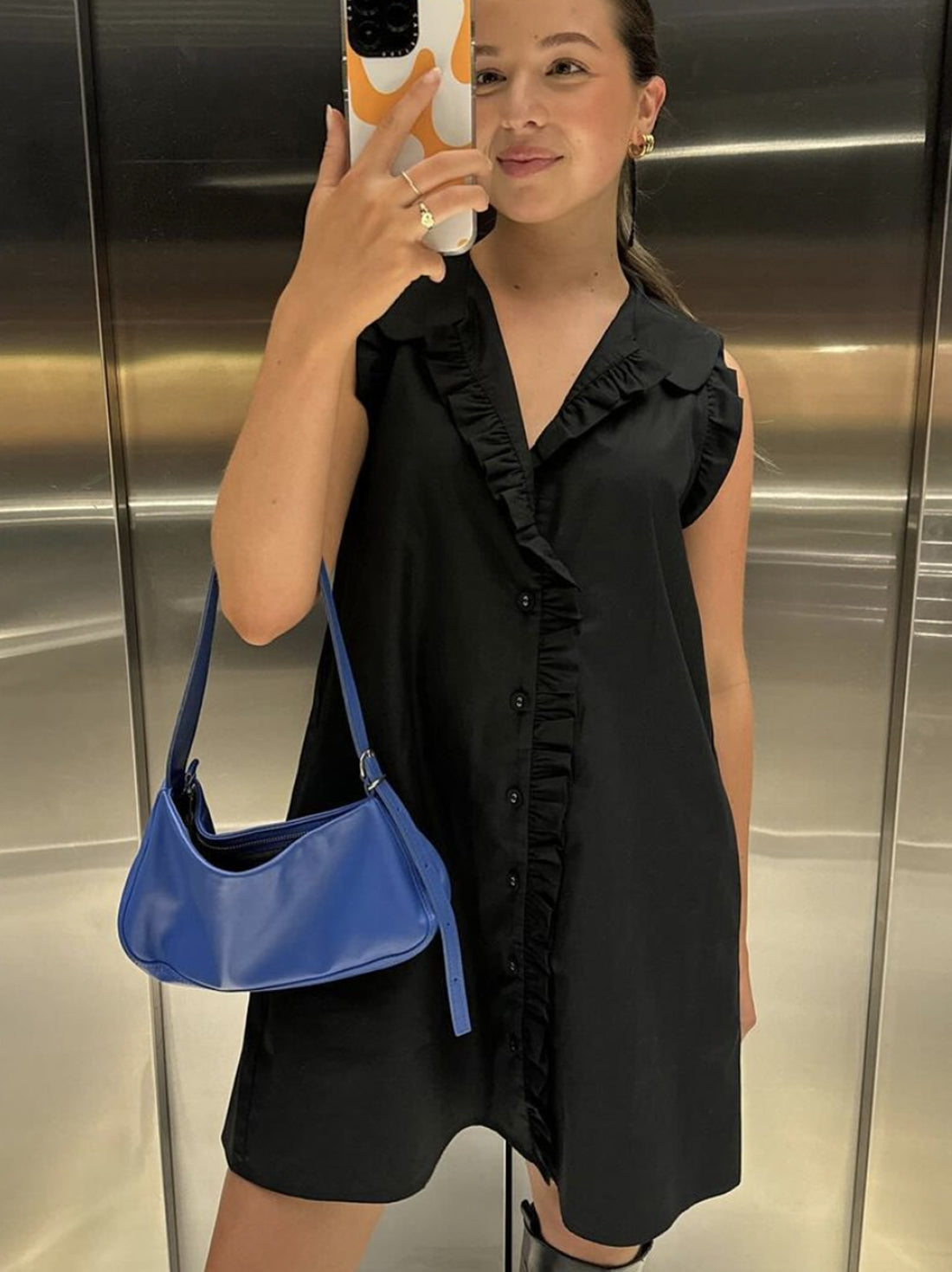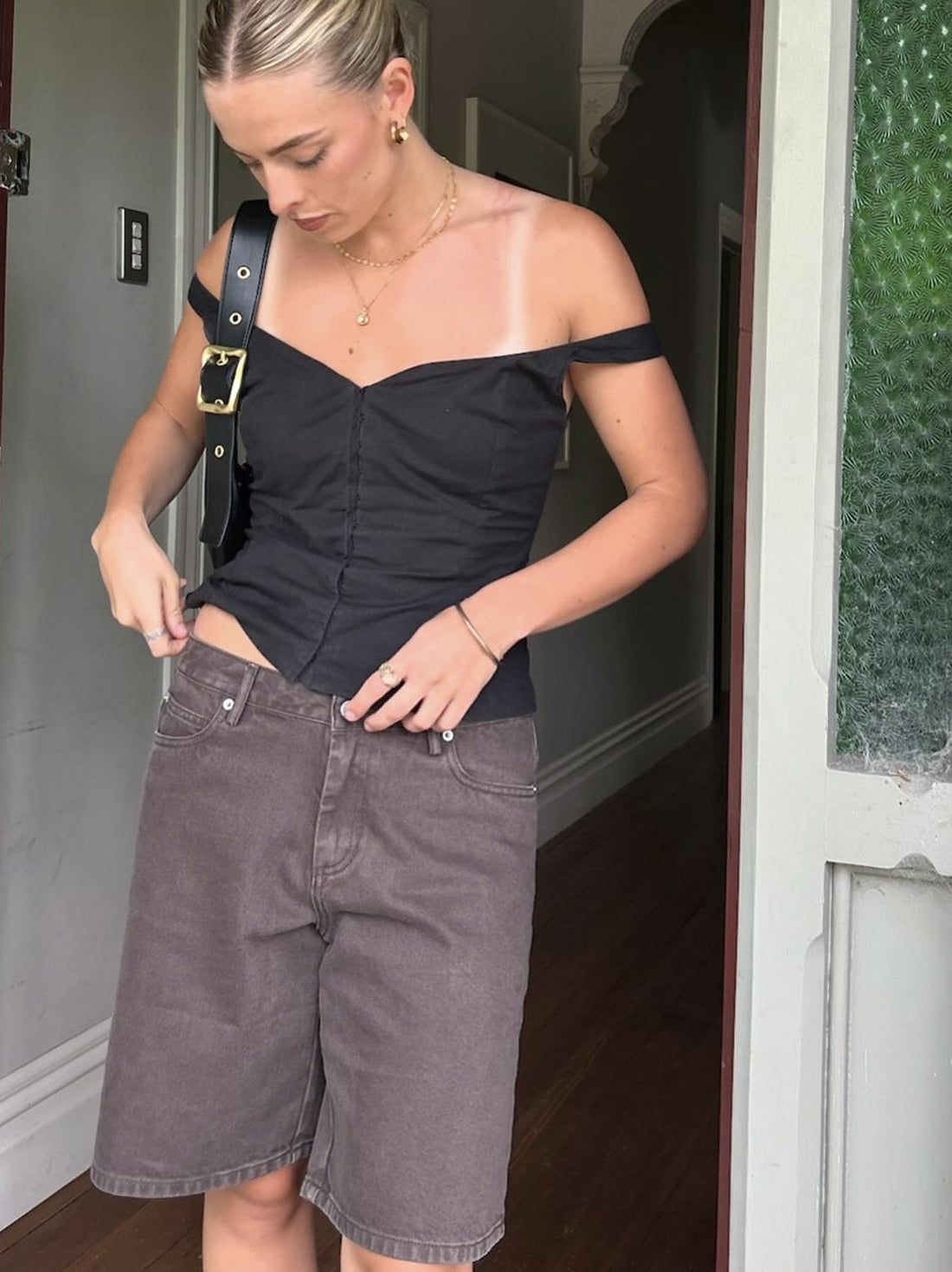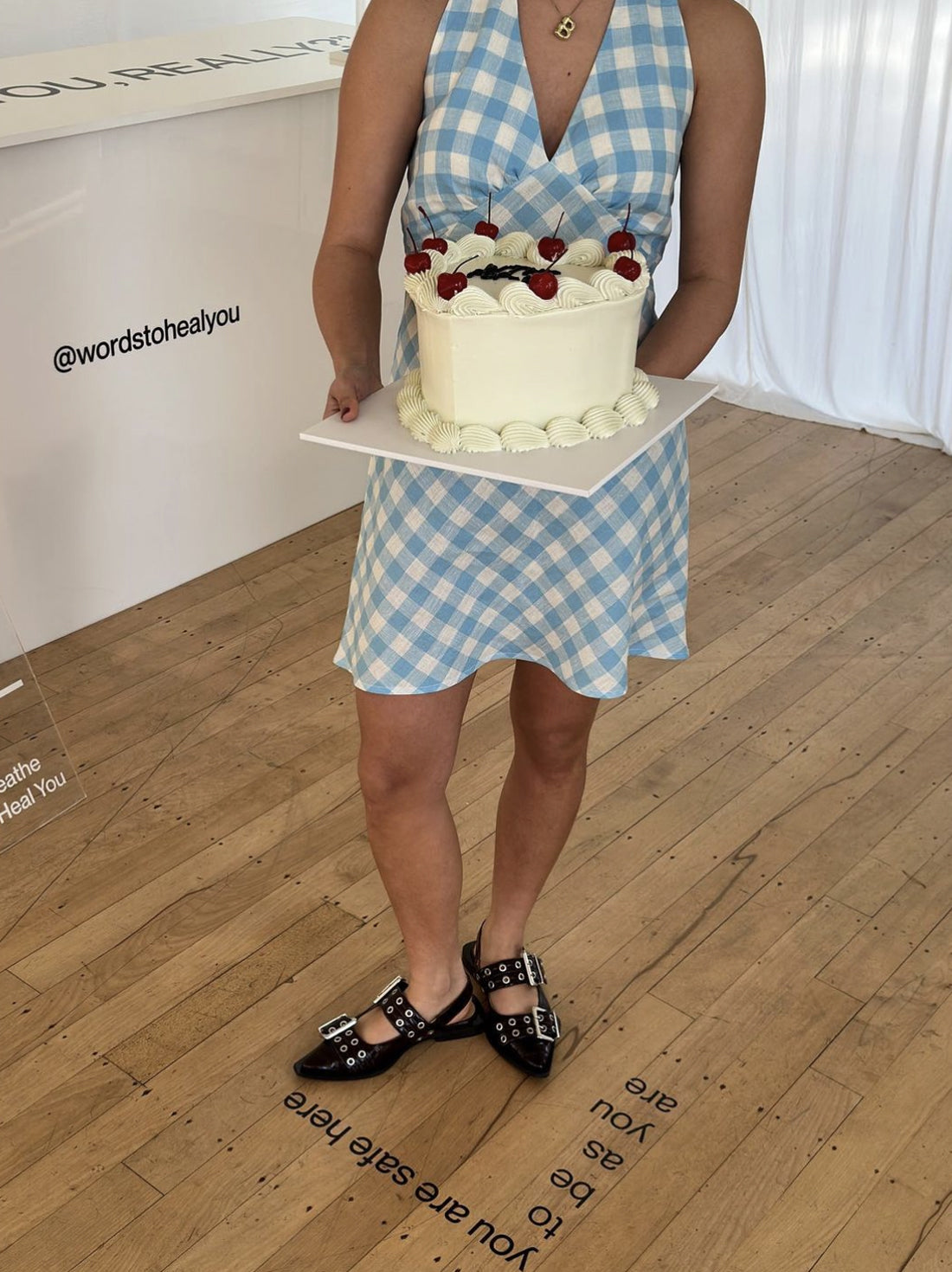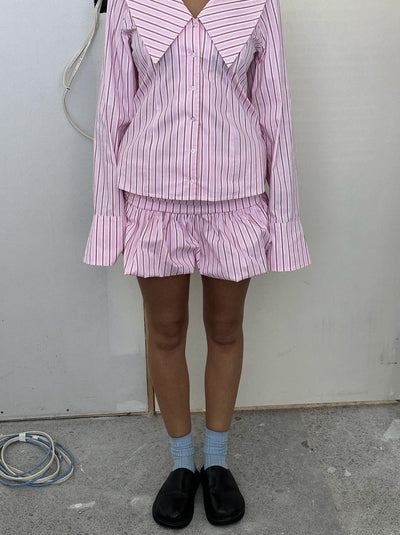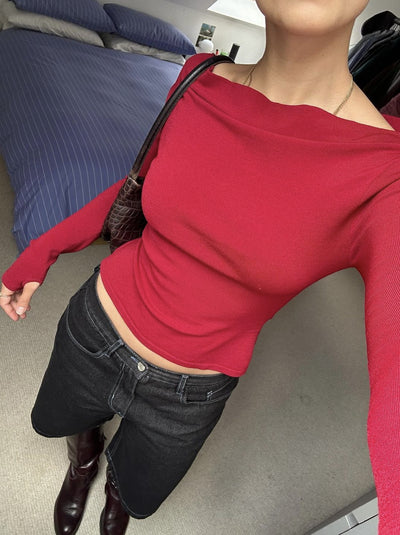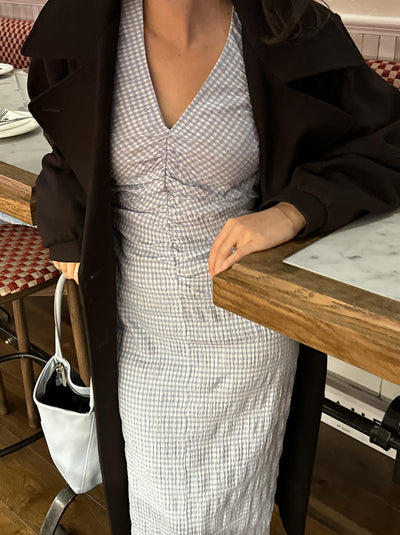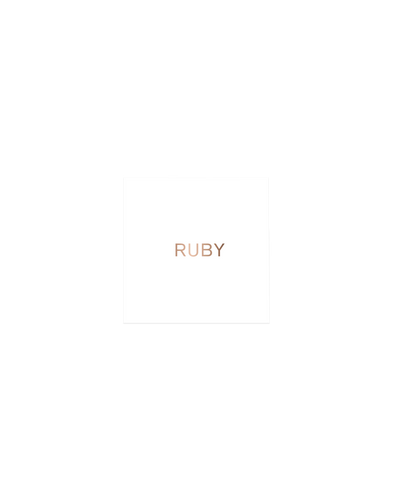Toolbox / Manufacturing
Manufacturing
As a business, we have a responsibility to ensure our Makers are treated fairly, and can carry out their role in respectful working conditions.
The global fashion supply chain has been linked to an extensive range of exploitative practices, but we have worked hard to ensure our standards and policies are upheld.
The work to reduce the risk of Maker exploitation and minimise environmental impacts in our supply chain is continuous. For example increasing the transparency around workplace conditions, and ensuring our Factory Partners can verify they are meeting our standards.
This section outlines the CMT processes in the production of our clothing. For information on the production processes for the materials we use in our pieces, please see here.
~ ~ A NOTE ~ ~
We use some shorthands to describe the people, companies and processes involved in the manufacturing process, they are listed below.
Sampling: the development of a garment or sample collection from concept to a piece that is ready to be put into bulk production
CMT (cut, make and trim): the processes involved in bulk garment production, listed below:
- Making pre-production samples (if the factory is based in China or Turkey)
- Pattern grading and marker making
- Cutting
- Sewing
- Attaching trims
- Washing
- Pressing
- Quality Control
Makers: the people who complete the CMT processes listed above
Factory Partners: the companies we work with that employ or contract out to the people who complete the CMT processes (Makers).
OUR PROGRESS
The work to reduce the risk of Maker exploitation and minimise environmental impacts in our supply chain is continuous, for example increasing the transparency around workplace conditions, and ensuring our Factory Partners can verify they are meeting our standards.


Our sampling process happens mostly in-house. We have two pattern makers, three sample cutters and one sample machinist. We also work with two Auckland-based Factory Partners to help with the sewing of our samples.
Our CMT processes are carried out by Factory Partners who are in New Zealand, China and Turkey.
We want the New Zealand CMT industry to thrive: creating and maintaining meaningful employment, and aiding economic growth in our community. One way of doing this is to make our clothing in New Zealand. Currently, 50% of our CMT processes happen in New Zealand. Other ways we work to support the industry can be found here.
The remaining 50% of our CMT is in China and Turkey. Most of this (95%) is made in China, with Turkey being a relatively new place for us to manufacture. While CMT cost and fabric location can be a consideration when deciding where to make a garment, other factors such as technology, maker skills and equipment availability (for example in the construction and washing of denim, or the knitting of fully fashioned knitwear pieces) play a big part.
Human rights, working conditions, and transparency are important to us.


Alongside Kate Sylvester, RUBY founded Mindful Fashion New Zealand (MFNZ) in 2019. MFNZ created a Code Of Conduct which defines responsible business standards that members are expected to follow. These standards are based on international guidelines including the International Labour Organisation’s Core Conventions, the Ethical Trading Initiative Base Code and the United Nations Guiding Principles on Business and Human Rights. The Code of Conduct is available in English and Mandarin.
In 2020 we replaced our RUBY Code of Conduct with the MFNZ Code of Conduct, and all of our existing Factory Partners agreed to adhere to the conditions and signed it. Any new Factory Partners are required to adhere to and sign it. This is inclusive of subcontracted factories, and also local businesses we deal with.


From time to time, we will bring on new Factory Partners that can provide us with products, services or technology that our current suppliers cannot develop. This is a more straightforward process compared to implementing improvements of our long standing Factory Partners, as we only engage with suppliers who can demonstrate they already have good processes and policies in place through things such as certifications, audit reports or in person visits.
When onboarding a Factory Partner, we conduct a due diligence process to get an understanding of their business and to ensure they meet our standards and are aligned with our values. The process includes conducting a supplier discovery questionnaire, reviewing policies, reviewing and verifying any social compliance and environmental audits and certifications, and then they are sent our Code of Conduct, Supplier Manual and Homeworker Policy (if applicable) for reading and signing.
If the supplier does not complete this full due diligence process, we will not proceed to work with them.


We define “long standing” Factory Partners as ones we have worked with for a minimum of 4 years, some of these Partners we have worked with for 15 years.
We have successfully transitioned 80% of our long standing offshore Factory Partners to comply with our requirements.
Of these Factory Partners that have not yet fully transitioned, two are sub-factories who make a small amount of fully fashioned knitwear for us. They have not completed a third party social compliance audit but they have completed questionnaires and provided other onboarding documentation.
Our deadline for all Factory Partners to have fully transitioned is the end of 2023. We have given them a three year timeframe because some of the changes take time, there have been COVID-19 related disruptions, and we believe it is better for us to do this work with Factory Partners, helping them to improve their practices overall, rather than abandoning the relationship which would result in less of an incentive for them to improve. However, we do need to ensure that the improvements are being made at a reasonable speed, so we will cease working with any Factory Partners who do not meet our key requirements at the end of 2023.


Over several decades, the garment supply chain has been built in an opaque manner, with many facilities, and the people working in them, remaining hidden from businesses and the end consumer. We have been continuously working to improve the transparency of our supply chain - from the raw material through to the CMT process.
We have visibility of 100% of our CMT Factory Partners, information on them is in this chart. If subcontracting or homework is required, our Factory Partners must seek approval from us, and then work through the onboarding process outlined above for the subcontractor.
You can find information on the supply chain of our materials here.


An important component of the New Zealand CMT industry are the Makers who work at home. This has benefits for both the Maker and the factory, as there is the flexibility of working hours and the ability to work from home.
We are aware that homeworking can pose a number of risks, including the lack of health and safety standards, lack of monitoring working hours, wages (as often they are paid by piece instead of by hour) and overall lack of transparency. To acknowledge and mitigate these risks, we developed and implemented a Homeworker Policy in 2021. Since then we have worked with our New Zealand and offshore Factory Partners to implement this policy through to the supply chain.
Currently, 88% of the New Zealand Factory Partners who use homeworkers have signed our homeworker policy. We are working through this with the remaining two Factory Partners, and will have this completed by the end of 2023.
We have one China based Factory Partner that uses homeworkers for hand making components, such as embroidery and the making of garment ties and loops. They have signed and agreed to our Homeworker Policy.


At RUBY we require our offshore Factory Partners to undergo and send us copies of social compliance audit reports and corrective action plans, and we check these annually. We are aware that audits are not completely foolproof, and there are issues that can arise in this process, such as bribery of auditors, it can be a drain on factory resources and time, and having to do similar work for different brands. This is why MFNZ created a standard Code of Conduct for all factories in the New Zealand industry - it means there is a single set of rules instead of each company having slightly different ones.
However, as we are not able to visit our offshore Factory Partners as often as our New Zealand factories, it is important for us that we have ‘eyes on the ground’, and these audits give us some insight into the improvements factories have made, possible risks that could happen, help us to push for change where improvement is needed, and to prioritise which Factory Partners we work with.
The offshore Factory Partners that have not completed audits have instead completed questionnaires which outline the most important areas covered in social compliance auditing standards. As mentioned above in the section about improving long standing offshore factory partners, if audits are not completed by these factories by the end of 2023, we will cease working with them.
With our New Zealand Factory Partners, due to issues noted in the Challenges section, we ensure our team visits the facilities regularly and hold open conversations on their challenges. We work with them collaboratively to address some of these issues to ensure that their worker rights and the local environment are kept front of mind.
OUR CHALLENGES


The global fashion supply chain has been linked to an extensive range of exploitative behaviours, with garment workers bearing the brunt of some of these practices.
Below are some of the major risks in the industry that we work to mitigate through our Onboarding and Factory Partner improvement processes:
- Child Labour
- Gender inequality & vulnerability
- Wages - not meeting legally set minimum wage, being paid in full or on time
- Excessive overtime
- Modern slavery
- Poor working conditions
- Occupational Health & Safety
- Discrimination, harsh & inhumane treatment
- Sub-contracting & lack of supply chain transparency
- Vulnerability to homeworkers & migrant workers
- Harsh chemical use impacting environment & workers.


As a mid-sized New Zealand brand, we have relatively limited control or influence with our overseas Factory Partners, who also manufacture for larger global brands. This can mean it can be difficult to enforce our requests for changes to their practices. We work closely with our Factory Partners to ensure our key fair labour requirements are met. See ‘Our Progress’ for how we do this.
There are broader issues such as Makers being paid a living wage (instead of the legal minimum wage) and Makers working excessive overtime. These are incredibly hard to shift as they are embedded in the supply chain. In addition, not all of the other companies our Factory Partners make for have the same requirements as us. We do however mitigate excessive overtime by ensuring we give our Factory Partners enough lead time, and we do not penalise or cancel orders due to late deliveries.
As RUBY evolves, we need to bring on new Factory Partners. We have a strict onboarding process with every Factory Partner, and we check and verify all documentation and factory practices to ensure they meet our requirements before we start working with them. Our onboarding process was developed in 2020. This means that our long-standing Factory Partners did not go through this process when we initially started working with them. In these cases, we work to educate and support those Factory Partners through this transition.
To ensure we are building strong relationships with our offshore Factory Partners, and to see first-hand that the working conditions of Makers are meeting our expectations, we aim to visit our overseas Factory Partners every year. However, due to the disruption of COVID-19, our ability to travel has been restricted, and we haven’t been able to visit them in some years, which has put pressure on our team as we are reliant on third-party audits to ensure compliance is maintained.


Using audits to verify and check offshore Factory Partners has become a standard and necessary practice in the global fashion industry. This has led to the demand for New Zealand factories to also be audited. However, due to the extremely small scale of the factories in New Zealand (our fifteen local Factory Partners have between one and thirteen Makers working in them), the audits run by global companies are not fit-for-purpose.
Our local Factory Partners are Auckland based, which makes it easy to visit them regularly - ranging from every day to once a month - and all New Zealand-based factories must abide by strict New Zealand regulations around pay, working conditions and environmental stewardship.
our plan
In 2023 we will:
-
1
Update the risk assessments on all of our Factory Partners (this is done every two years)
-
2
Audit (or check audits) of all offshore Factory Partners (this is done annually)
-
3
Ensure all offshore Factory Partners prove they are meeting key labour requirements through auditing or certifications
-
4
Work with our local factories to sign and agree to our Homeworker Policy
-
5
Visit our Factory Partners in China

Product
The work and care we put into our product so that each piece is loved for a long time and by many.
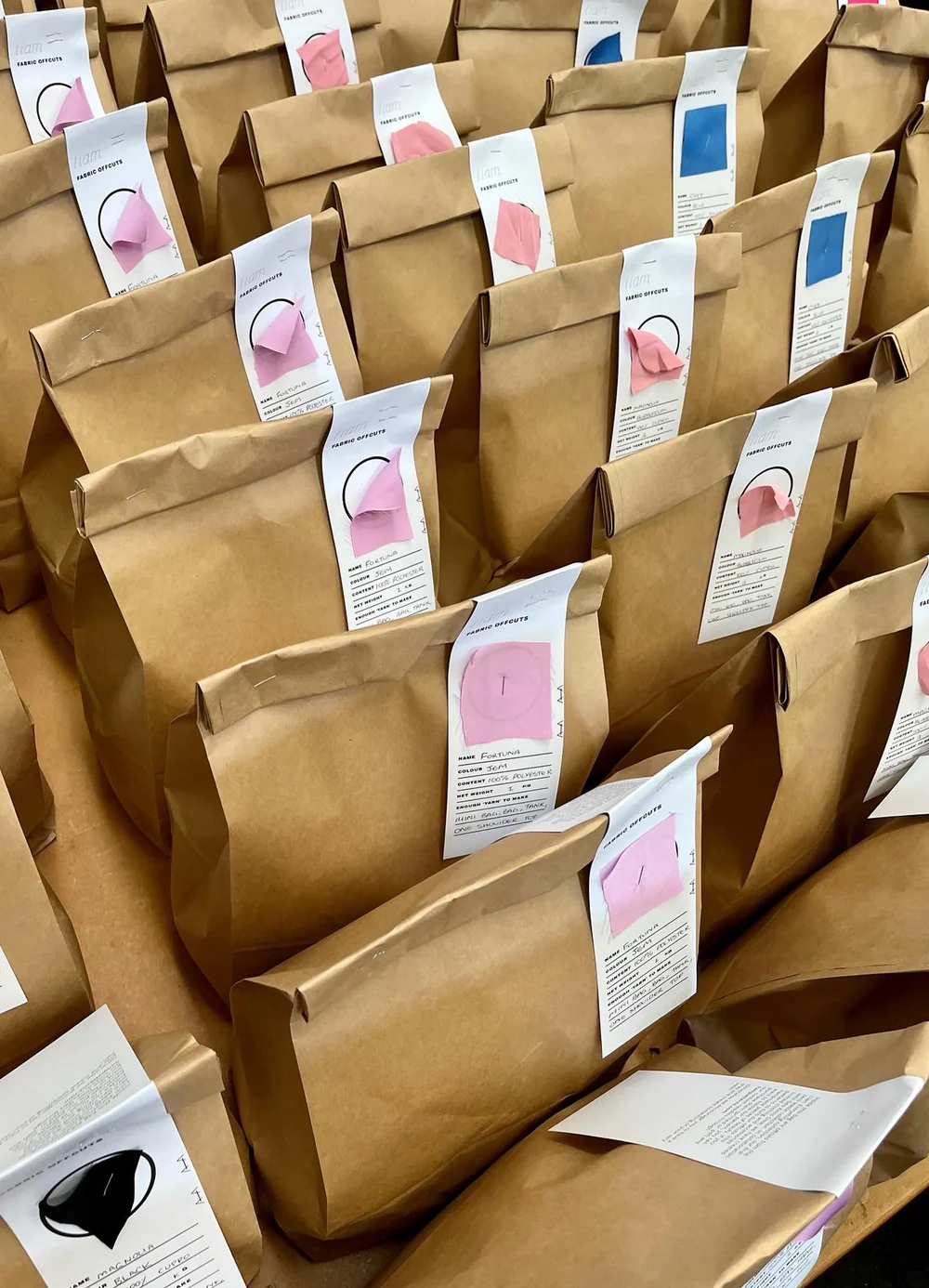
Community
We believe in strengthening & educating our local community whether that be those in our team, Rubettes that frequent our stores or those we haven’t met yet.
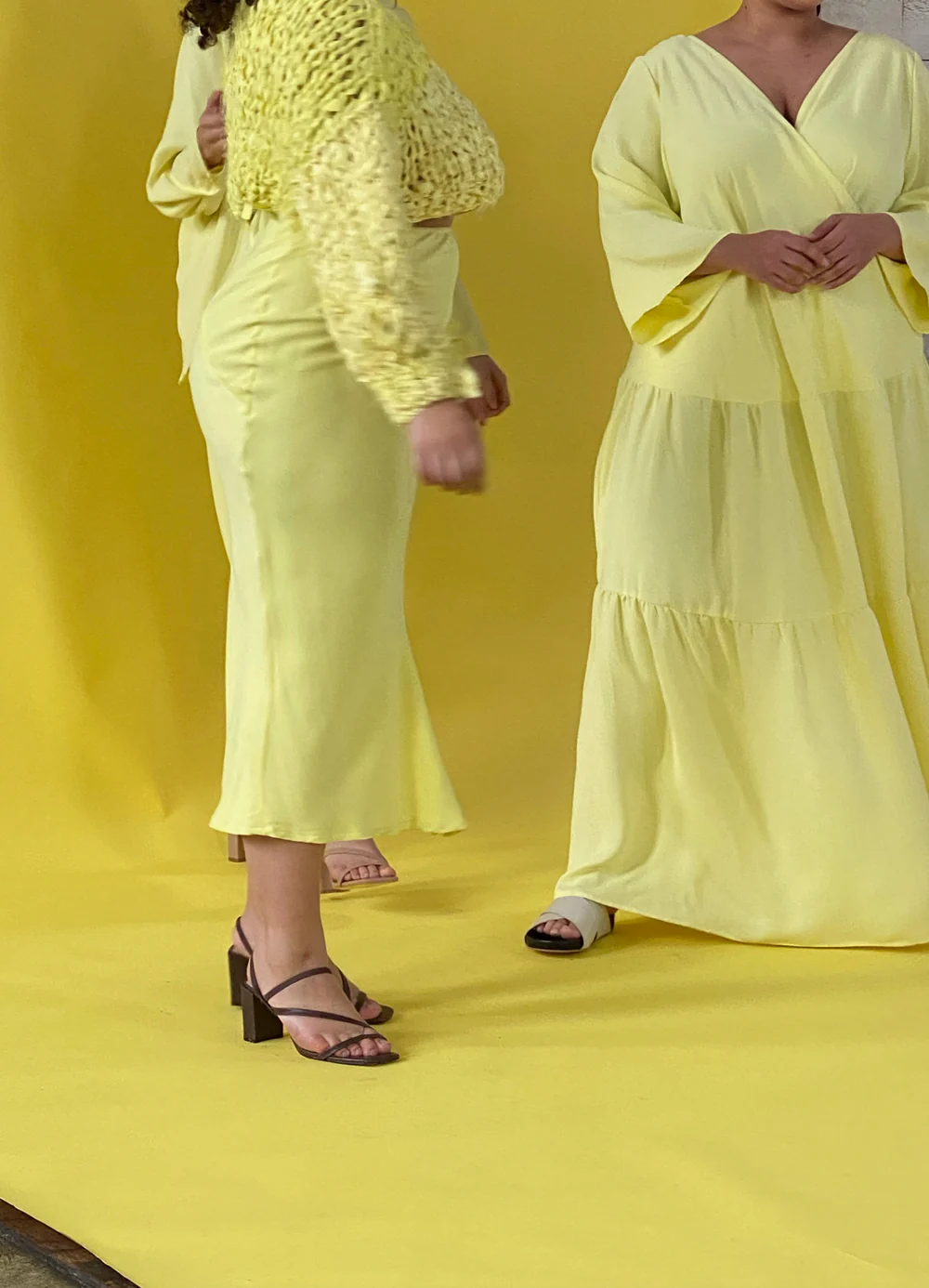
Carbon Curious
Insights into our carbon footprint and the plan to reduce our emissions.
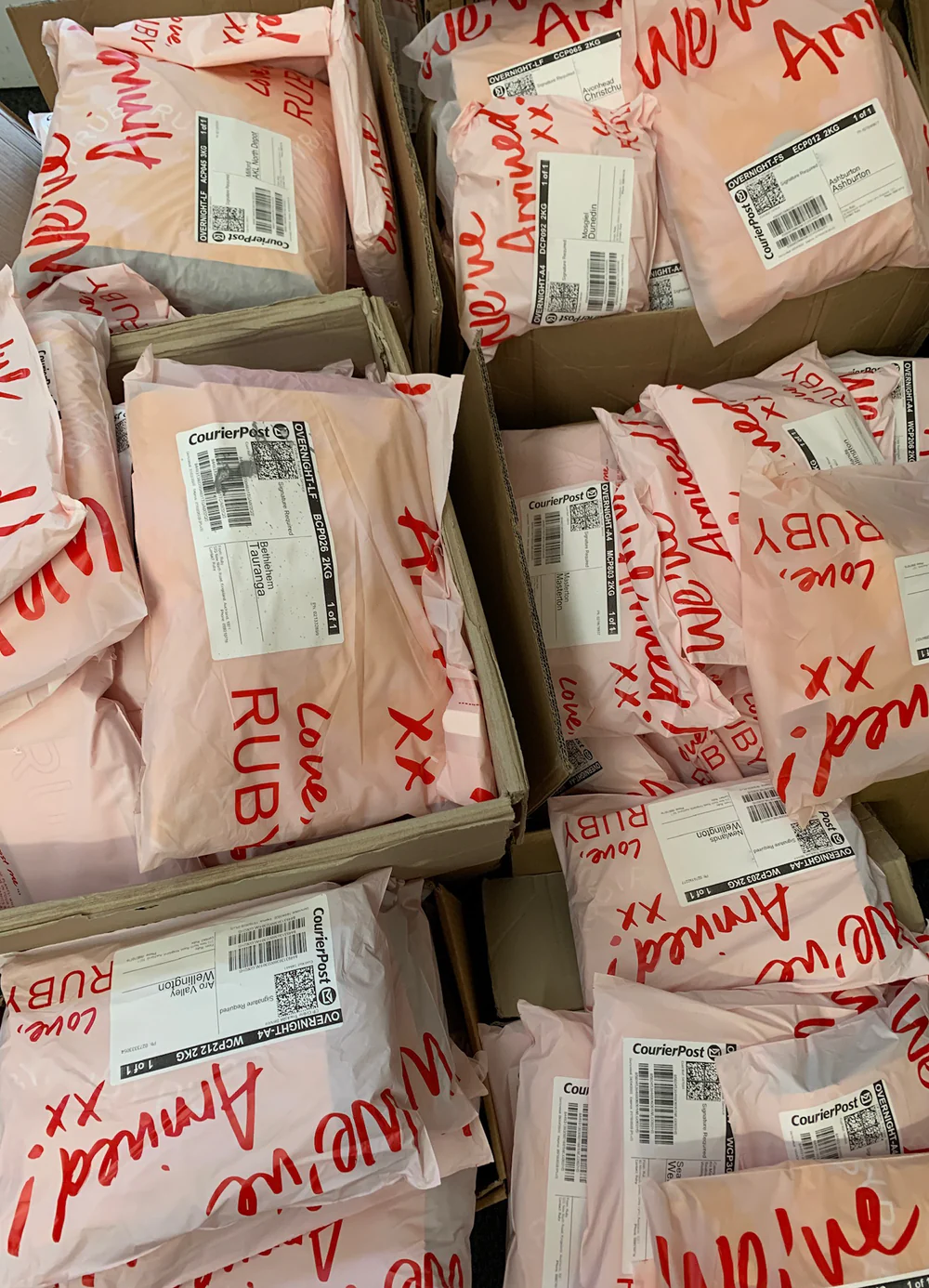
Product
Community
Carbon Curious
Education
Product

Community

Carbon Curious

Education
